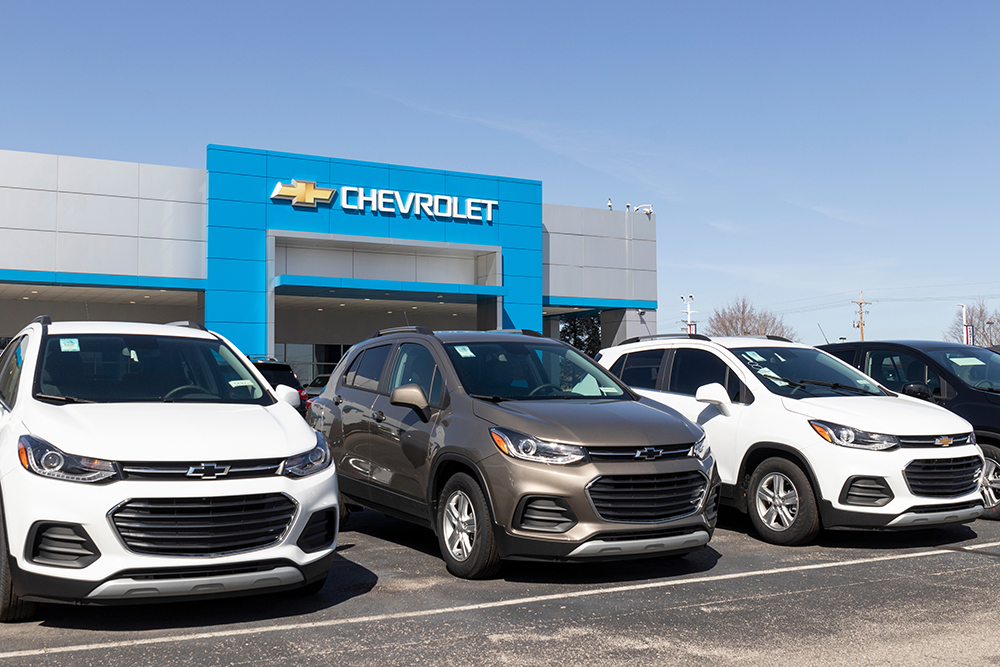Since the advent of modern EVs, auto dealerships have been seen as an impediment to faster EV adoption—and that image doesn’t appear likely to change any time soon, even though annual US EV sales cracked the one-million mark in 2023.
Over 3,800 US auto dealers recently signed on to an open letter to President Joe Biden calling for the government to slow down its plans to encourage EV adoption. The dealers say that EV demand “is not keeping up with the large influx of BEVs arriving at our dealerships prompted by the current regulations,” and that BEVs are “stacking up on our lots.” They respectfully ask President Biden “to tap the brakes on the unrealistic government electric vehicle mandate.”
Since the letter was written, several EV pundits have written detailed rebuttals, including Electrek’s Fred Lambert, Ars Technica’s Jonathan M. Gitlin and InsideEVs’ Patrick George, who notes that “concerns from car dealers shouldn’t be mistaken for consumer advocacy.”
Which specific policies do the dealers object to? Do they want to eliminate tax credits for EV purchases? Incentives for automakers to build EV and battery plants in the US? Federal funding for charging infrastructure? The letter doesn’t say.
There is a big misconception about EPA’s greenhouse gas car proposal…EPA is not mandating EVs but proposing a set of tighter emissions standards for 2027-2032.
In nine paragraphs, the letter uses the word “mandate” four times, but in fact, no such mandate exists at the federal level (California is a different story). The main federal policies that are driving automakers to develop and produce EVs are the complementary EPA emissions standards and NHTSA fuel economy standards, but there is no actual mandate requiring a certain percentage of EV sales (the President’s aspirational goal of “50 percent EVs by 2030” notwithstanding), and there is no regulation that requires dealerships to stock EVs.
In fact, Executive Manager Greg Soulliere of Maher Chevrolet in St Petersburg, Florida told Charged that his company makes the decisions about which models to add to its inventory. Neither GM nor any government agency mandates that GM dealerships stock EVs.
Certainly, government regulation around the world (even more so in Europe and China than in the US) is one of the prime drivers of electrification. But if auto dealers truly want to influence regulatory policy, they might be better served by making specific proposals rather than a vague call to tap the brakes on a non-existent mandate.
“There is a big misconception about EPA’s greenhouse gas car proposal,” former EPA exec and author Margo Oge told Charged. “Under the Clean Air Act, EPA must set ‘performance-based’ standards after considering a number of factors, including availability of technologies, cost, lead time and overall benefits. EPA is not mandating EVs but proposing a set of tighter emissions standards for 2027-2032.”
“Based on the above factors, [EPA] has demonstrated in its 1,000-plus-page analysis that EVs will be more cost-effective than other technologies to meet the required emissions thresholds,” said Ms. Oge. “Ultimately, it is up to the car manufacturers to meet those proposed standards, and [they] can do so with a mix of technologies, including EVs, hybrids, plug-in hybrids [and] improved ICE engines, just to mention a few.”
The list of signatories to the letter, which represents about 21% of US dealers, includes some strange bedfellows. Ms. Oge notes that some of the signers would not seem to have any EV sales experience, as their OEMs have not yet introduced any in the US. Other OEMs are producing EVs only in minimal volumes. It’s no surprise to see lots of Toyota and Honda dealers on the list, but are we to believe that Toyota’s bZ4X is “stacking up” on the lots?
More surprisingly, the list also includes dealers for brands whose EVs have been selling well (Hyundai and Volvo), and four dealers for the electric-only Polestar brand (these are reportedly members of a large group that required all its dealerships to sign). We were also disappointed to see Maher Chevrolet, Florida’s #1 seller of Chevy EVs, on the list. As Mr. Soulliere told me, “We strongly believe in EVs, but we want consumers to have a choice.”
Few would argue with the desirability of consumer choice. I’ve been arguing for years that automakers need to offer more EVs in popular segments, and especially more low-priced options. But pissing on the President’s efforts to promote electrification isn’t going to solve that problem—or any of the other problems the dealers have identified.
The dealers ask the administration to “allow time” for battery technology to advance, for BEVs to become more affordable, and for charging infrastructure to become more reliable. But while these things are indeed happening more slowly than EV advocates would wish, all are happening largely because of government regulation (as did, for example, the introduction of airbags and catalytic converters). Tapping the brakes on regulation would surely mean tapping the brakes on innovation—while Europe and China floor their accelerators.
Sources: Electrek, Ars Technica, InsideEVs
